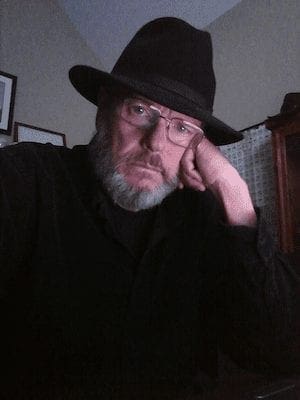A prominent Southern Baptist pastor and educator is concerned that President Bush is going overboard reaching out to the American Muslim community.
Mark Coppenger, pastor of Evanston (Ill.) Baptist Church, and former president of Midwestern Baptist Theological Seminary, fears Bush may have a false view about the nature of Islam.
In the wake of the Sept. 11 attacks, Bush made several overtures to America’s Muslim community. The President said American Muslims were being unjustly maligned and attacked in retaliation for the terrorist attacks on New York and Washington. Bush cautioned Americans not to vent their anger on the American Muslim community, referring to them as “our neighbors,” and as “good and peaceful Americans.”
In a Baptist Press column, Coppenger said the President went too far and affirmed too much. Coppenger agreed that religious tolerance and religious freedom are rooted in the U.S. Constitution, and that religious freedom certainly extends to American Muslims. However, he cautioned about the danger of affirming Islam as a viable faith. He said Muslims were “prone to keep and indulge a lot of bad company.”
Coppenger believes the President’s words will make Islam immune to criticism. He wrote, “I fear that in our rush to reassure non-terrorist Muslims of our congeniality, we’ve spawned a new sort of political correctness, a new form of bloated sensitivity which crowds out clear thinking.”
According to Coppenger, the President is giving Islam a “clean bill of health.” What does that mean exactly? How does a religion attain a “clean bill of health?”
Islam does not deserve a clean bill of health, Coppenger said. Apparently only those faiths which affirm the divinity of Christ are worthy to be declared healthy, or legitimate. That means the Christian faith is America’s only legitimate religion, and the only faith deserving Constitutional protection.
Coppenger is confused about certain realities. The U.S. Constitution offers no religious test for those who would enjoy its protection. The religious freedom provided by our Constitution is for all faiths. This may be difficult for a true believer to accept, but under the Constitution, all religions are created equal.
Coppenger is also confused about the role of the President. Bush is the president of a country, not a denomination. This is not 16th century England where the king was hailed as the “defender of the faith.” Bush, by virtue of his office, is the highest-ranking defender of the Constitution. In fact, he was sworn into office with, “I promise to protect and defend the Constitution of the United States.”
When Bush attended a prayer service at a mosque, when he placed his arms around Muslim worshipers and called them “good and peaceful,” he did exactly what his office called him to do. As President, he symbolizes the equality of all faiths, and the supremacy of none.
Coppenger also wants us to believe that Muslims are more capable of evil than are Christians. He wants us to believe that a proper confession of faith about Jesus somehow generates a qualitatively superior moral existence.
If it were only that easy.
According to the Psalmist, the human heart is very dark. In spite of our best intentions, and against our own best moral instruction, we often do terrible things to each other. Sometimes we even do them in the name of God.
On Saturdays and Sundays we gather in our temples, mosques, and churches, join hands, and affirm with loud voices that our vision of the truth is the most true. We nurture our children with it, we feed our souls on it, and chart our paths by it.
We live in a complex democratic society where our faith is one faith among many. Citizenship in our democracy is not determined by what we say on Saturday or Sunday. Citizenship is determined by what we do on Monday.
If we seek to diminish a faith that is different from ours, we demonstrate insecurity about our own beliefs. If we go further, and seek to deny legal protection for a different religion, we weaken our common bond.
To be unified and free, we must protect basic freedoms of life, liberty, and the pursuit of a meaningful life. That’s not politically correct, that’s democracy.
James L. Evans is pastor of Crosscreek Baptist Church in Pelham, Ala.

